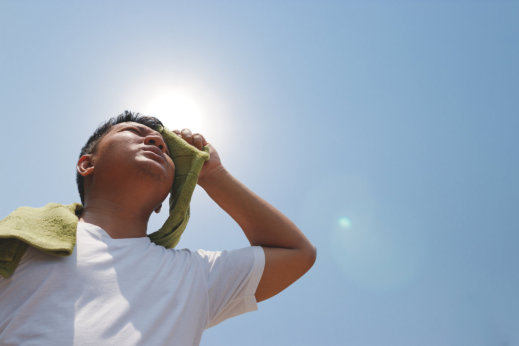
Not knowing much about heatstroke is dangerous, but having the wrong information could prove just as hazardous.
To keep yourself and the people around you informed and safe this summer, F.A.B LLC Homecare Services lists down some of the most common myths surrounding heatstroke. As a concerned provider of home care services in New York City, New York, we encourage you to examine these myths and facts closely.
- Myth: Sugary drinks are more effective in decreasing your risk of heatstroke. Fact: For some reason, most people think that sugary drinks are more effective in decreasing their risk of heatstroke. In fact, some people associate the invigorating effects of sugar with keeping the body alert. The truth is, feeling alert from sugary drinks is not the same as being properly hydrated.
In fact, sugary drinks can raise the risk of heatstroke. This is because they elevate blood sugar levels and increase body temperature. Water is still the best drink to prevent dehydration. If you are looking for other ways to stay hydrated, consider specially-made sports drinks. They are good alternatives because they provide minerals, calories, and electrolytes.
- Myth: The signs and symptoms of heatstroke are always apparent.Fact: There are many common symptoms of heatstroke, including breathing difficulties, nausea and vomiting, slurred speech, and more. However, some people don’t experience these common symptoms, and the symptoms they have may be hard to spot from another person’s point of view.
Remember, the symptoms of heatstroke also include confusion, headaches, and dizziness. Being mentally compromised can prevent victims of heatstroke from realizing that they are in danger. So, if a loved one starts to behave strangely and becomes disoriented, take them to the nearest emergency room immediately.
- Myth: The person is still sweating so it’s not an emergency.
Fact: A person who has become so overheated and dehydrated that they lose their ability to sweat is more than likely suffering from a heatstroke. However, just because a person is still sweating doesn’t mean that they are not experiencing a heatstroke. Exertional heatstroke (EHS), in which the person is participating in strenuous activity, may happen even if the person is still sweating.
The Takeaway
Heatstroke is the most severe and dangerous form of heat injury and is considered a medical emergency. Having the right information is crucial to keeping yourself and your loved ones safe. Hopefully, this article from your reliable home health care agency in New York is able to help you separate facts from fiction.
What other myths have you heard regarding heatstroke and heat-related illnesses? Let us know and we will try to debunk them!










Leave a Reply